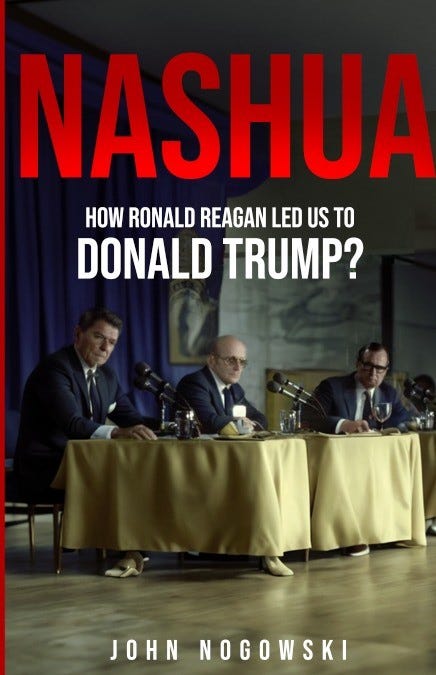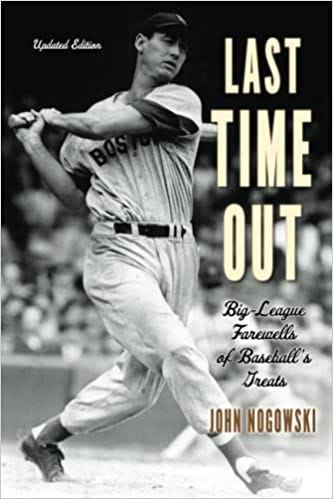"How did you come up with that?"
Where DO book ideas come from? It's an eternal mystery - and history is no help
“How did you come up with that?” It’s a question that readers often throw at writers, who usually smile, nod, shrug and offer some generally lame-ass explanation. (Psst: They don’t know.)
It’s not like I’ve written best-sellers or anything so I can only speak for me. I don’t actually know, either. It IS a good question, though.


When I read Joseph Heller’s smart-ass classic “Catch 22” I wondered the same thing. How did he think of that? So, I bought a book of Heller interviews and he shared this. “I was lying in bed in my four-room apartment on the West Side when suddenly this line came to me: “It was love at first sight. The first time he saw the chaplain, someone fell madly in love with him. I didn’t have the name ‘Yossarian.’…but as soon as the opening sentence was available, the book began to evolve clearly in my mind…the tone, the form, many of the characters…”
Which is a good answer, maybe for Heller. But “love at first sight?” Talk about a cliché. And with a chaplain? Hardly the stuff of literary legend.
For my baseball book “Last Time Out,” my original idea came in fairly logical fashion. I’d had a chance to talk to author John Updike, who’d written this legendary piece about Ted Williams’ final game with the Boston Red Sox. On the way home, I got to wondering about how baseball’s other great players ended their careers. I called a guy at the Baseball Hall of Fame, asked him if he thought it was a stupid idea for a book. He didn’t, said call this lady in Indiana, she works for a publisher. With two phone calls, I had a book deal.
Doesn’t generally work like that. For my latest book, “Nashua: How Ronald Reagan led us to Donald Trump,” the process was a little more mysterious. Somewhere along the way, I had read an account of a not particularly famous soldier named Henry Tandey, who, in the middle of a World War I battle near a village in France, came upon a wounded German soldier and instead of plugging him, decided to spare his life. Turned out it was Adolph Hitler.
When I read that about Tandey, it immediately made ME think of this incredible argument I had with former Nashua Telegraph Executive Editor Jon Breen a few scant hours before Breen went out and made an absolute ass of himself in front of the world. On a February night in 1980, Breen supposedly was to moderate the debate between Reagan and George Bush but in fact, by trying to shut Reagan up, Breen helped the 69-year-old two-time Presidential loser look like a combination of Wyatt Earp, Jesse James and Rocky Balboa with his defiant line: “I’m PAYING for this microphone, Mr. Green.”
Though Reagan had totally reneged on his pre-debate deal – just he and Bush – Breen’s belligerence lifted the Nashua High crowd into chaotic ecstasy, made an instant hero of ancient Ronnie and had New Hampshirites lining up behind him.
Even though there were two days left to campaign, Bush flew immediately home to Texas. Reagan won New Hampshire going away, fired his campaign manager the next day – the guy who had cooked up the debate idea to begin with – and Ronnie moved on to eight years at Pennsylvania Avenue.
Since Reagan came into the debate trailing in the New Hampshire polls, - so much so, once the Telegraph found out that Federal Election laws wouldn’t let them sponsor the event and the paper asked the candidates to split the bill, Bush’s people refused. They thought they had things locked up.
So, to me, this whole turn of events, like Tandey’s, made ME think what if I HADN’T pissed off Breen so much, he might have been more conciliatory in the debate, Reagan might not have won. And that thought lingered in my brain until, years later, hearing Donald Trump’s freakish American Carnage Inaugural (George W. Bush: “That was some weird shit”) – which made me flash back to Reagan’s own odd Inaugural where he said “Government is not the solution to your problems, Government IS the problem.” I thought, uh oh.
What if, as stupid as it might seem, that newsroom firestorm between Breen and I that Saturday afternoon in February had far-reaching consequences that changed all of our lives by giving us eight years of Ronald Reagan.
Though it seemed almost every single member of Reagan’s Administration ended up indicted or jailed by the end of his term (look it up!), Ronnie left office as a well-respected President by many historians, an assessment I personally didn’t agree with.
Then, when researching “Nashua,” I read Thomas “Tip” O’Neill say “There’s no question in my mind that Ronald Reagan was the worst (President). It was sinful that Ronald Reagan ever became President. Whenever we got over there (White House), he operated from a 3x5 card…He wasn’t deep in the subjects when you compared him with other Presidents. But I have to say he was a lazy fellow, never did his homework, never paid attention to the briefings, never well-prepared.” And there were all these other historians and politicians piling on. Then the story comes out about Reagan’s rigged deal for the Iranian hostage release ON INAUGURATION DAY!
The more I looked, the more skepticism I found about Reaganomics, his Presidency, historians who ridiculed him, saw him drop to 17th in a recent Presidential poll (behind Biden!), it makes you wonder about our history. Were they right then? Are we right now?
So was my “Nashua” idea on target? I guess we’ll have to wait for history to tell us.
Editor’s note: “Nashua: How Ronald Reagan led us to Donald Trump” is available on Amazon if you’re interested. It was a book I just had to write.



